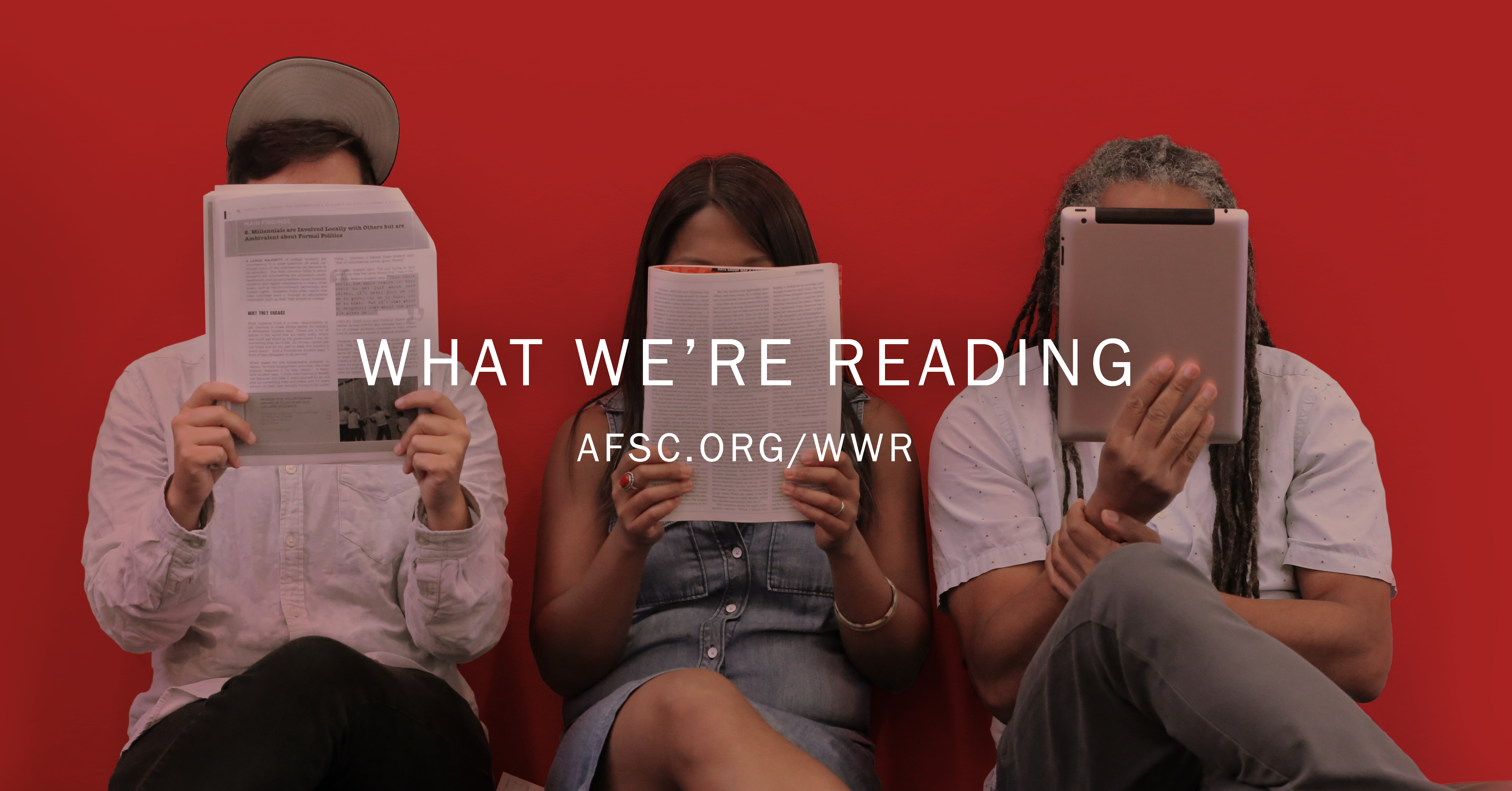
On International Women's Day, thousands of people across the globe participated in the "Day Without a Woman" events, staying home from work, attending protests, and refraining from shopping. Here's what we’re reading to learn more.
“Women worldwide strike in the name of intersectional feminism,” by Barbara Ransby via Truthout
 "Despite media narratives that describe women's mobilizations around the presidential election in insular terms, the truth is that the current mobilizations rest upon a long and diverse history of feminist organizing that has grown steadily since the 1970s. Groups like INCITE! Women of Color Against Violence have been important feminist voices against state violence and mass incarceration for nearly two decades. … Most recently, the feminist leaders of the Movement for Black Lives—Charlene Carruthers of BYP100, Thenjiwe McHarris of Blackbird, and Black Lives Matter Global Network founders Alicia Garza, Opal Tometi and Patrisse Cullors—along with young queer organizers in the movement against deportations like Tania Unzueta, have projected new forms of feminist leadership that mainstream observers seem reluctant to recognize or accept."
"Despite media narratives that describe women's mobilizations around the presidential election in insular terms, the truth is that the current mobilizations rest upon a long and diverse history of feminist organizing that has grown steadily since the 1970s. Groups like INCITE! Women of Color Against Violence have been important feminist voices against state violence and mass incarceration for nearly two decades. … Most recently, the feminist leaders of the Movement for Black Lives—Charlene Carruthers of BYP100, Thenjiwe McHarris of Blackbird, and Black Lives Matter Global Network founders Alicia Garza, Opal Tometi and Patrisse Cullors—along with young queer organizers in the movement against deportations like Tania Unzueta, have projected new forms of feminist leadership that mainstream observers seem reluctant to recognize or accept."
“A #DayWithoutAWoman isn’t symbolic for immigrant families across the U.S.—it’s a reality” by Alida Garcia via Huffington Post
 "The reality is that women have been disappearing from our communities under the radar of our country's collective outrage due to these chaotic interior enforcement rules every day.
"The reality is that women have been disappearing from our communities under the radar of our country's collective outrage due to these chaotic interior enforcement rules every day.
These policies are disrupting lives and communities under the guise of national security, and they are making our communities less safe. We are being told that our enforcement resources are being spent to target 'criminals'— but they forgot to mention that they decided everyone is a criminal. ... It's on us to raise our collective conscience as women who are citizens and push ourselves beyond our comfort zones to intentionally make the immigrants in our lives and communities feel less isolated and more supported with our love."
“Strike for women’s rights—sexual, racial and economic justice are at stake” by Keeanga-Yamahtta Taylor via The Guardian
 "The organisers of the women's march have called for a Day Without a Woman, and we have called for a women's strike. These actions are different in their origination and platform, but we are united in the need for ongoing struggle and political action.
"The organisers of the women's march have called for a Day Without a Woman, and we have called for a women's strike. These actions are different in their origination and platform, but we are united in the need for ongoing struggle and political action.
The call for the U.S. to join the international women's strike is an articulation for the kind of feminist politics that can provide a way to fight for a political agenda that represents the interests of the vast majority of working-class and poor women, in this country and abroad."
“On strike critiques and beating all meaning out of the word ‘privilege’” by Kelly Hayes via Transformative Spaces
"Is the #womensstrike an effective maneuver? That's an entirely separate debate, but I would argue that if it builds solidarity and people continue to learn new lessons about organizing, then it will be a victory. If it makes a cultural impact, in terms of a rising resistance, it will be a victory. If it inches people a little closer to radicalization, that's a victory.
I can't tell you with certainty what will create the necessary momentum to defeat fascism, but I can tell you what won’t: a circular firing squad of movement critics."
"What We’re Reading" is a weekly feature on AFSC’s News and Commentary blog, where we share a curated collection of recent articles on timely issues. "What We're Reading" is meant to spark discussion, debate, and knowledge sharing, and the articles we highlight do not necessarily reflect the official organizational positions of AFSC. We encourage you to tell us what you're reading on these issues in the comments below.